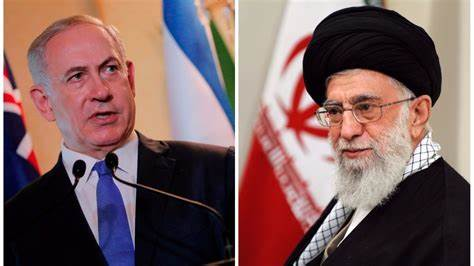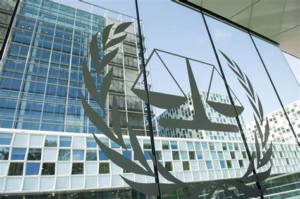One of the most complicated and tense relationships in the Middle East is that between Israel and Iran.Characterized by deep-seated animosity and a history of conflict, it has significant regional and global implications.
Historical Context:
Zionism and Iranian Nationalism: The rise of Zionism in the late 19th and early 20th centuries, which aimed to establish a Jewish homeland in Palestine, coincided with the emergence of Iranian nationalism. The establishment of Israel in 1948, displacing a large number of Palestinians, further exacerbated tensions.
The 1979 Iranian Revolution: The Iranian Revolution in 1979, which saw the overthrow of the Shah and the establishment of an Islamic Republic, significantly altered Iran’s foreign policy. The new regime adopted an anti-Israel stance, viewing Israel as an illegitimate entity and a key ally of the United States.
Proxy Conflicts: The conflict between Iran and Israel has often manifested itself through proxy conflicts in the region, particularly in Lebanon, Syria, and Yemen. Iran supports various militant groups, such as Hezbollah in Lebanon and Hamas in Gaza, which are actively involved in hostilities with Israel.
Key Issues:
Nuclear Program: One of the main points of dispute has been Iran’s nuclear program.. Israel views Iran’s nuclear ambitions as a serious threat to its security and has consistently called for stricter international sanctions. The 2015 Iran nuclear deal, which aimed to curb Iran’s nuclear program in exchange for sanctions relief, was ultimately abandoned by the United States in 2018, further escalating tensions.
Regional Influence: Iran and Israel are vying for regional influence in the Middle East. This competition has played out in various arenas, including Syria, Lebanon, and Iraq.
Palestinian Issue: The Israeli-Palestinian conflict remains a central issue in the region. Iran strongly supports the Palestinian cause and views Israel’s occupation of Palestinian territories as illegal.
Hezbollah: The Iranian-backed Lebanese militant group Hezbollah poses a significant threat to Israel’s security. Hezbollah possesses a large arsenal of missiles and has been involved in numerous clashes with Israel.
Recent Developments:
Escalating Tensions: In recent years, tensions between Iran and Israel have escalated significantly. There have been a series of incidents, including cyberattacks, missile strikes, and assassinations, attributed to both sides.
Regional Dynamics: The conflict between Iran and Israel is intertwined with other regional conflicts, such as the Syrian Civil War and the Yemen conflict.
International Efforts: International efforts to de-escalate tensions and find a peaceful resolution to the conflict have been largely unsuccessful.
Consequences:
Regional Instability: The ongoing conflict between Iran and Israel contributes to instability and insecurity in the Middle East.
Risk of Escalation: The risk of a wider conflict, potentially involving other regional and international actors, remains a serious concern.
Humanitarian Crisis: The conflict has had a devastating impact on civilians in the region, leading to displacement, casualties, and suffering.
Historical Overview
Early Relations
Following Israel’s establishment in 1948, Iran, under Shah Mohammad Reza Pahlavi, became the second Muslim-majority nation to recognize Israel. This period saw robust economic and security collaborations, including oil trade and intelligence sharing.
Post-1979 Islamic Revolution
The 1979 Iranian Revolution marked a pivotal shift. The new Islamic Republic severed ties with Israel, denouncing it as an illegitimate state and aligning with pro-Palestinian causes. This ideological transformation laid the groundwork for enduring hostility.
Key Events Shaping Relations
Support for Opposing Factions
Iran’s backing of groups like Hezbollah and Hamas, both adversaries of Israel, has intensified tensions. This support includes financial aid, training, and weaponry, contributing to regional instability.
Nuclear Ambitions and Regional Security
Israel perceives Iran’s nuclear program as a direct threat, suspecting intentions to develop nuclear weapons. This concern has led to covert operations, including cyber-attacks and targeted assassinations of Iranian nuclear scientists, aimed at hindering Iran’s nuclear progress.
Recent Developments
Escalation of Hostilities
In April 2024, Iran launched over 300 drones, cruise missiles, and ballistic missiles targeting Israeli military sites, marking its first direct attack from Iranian territory. Israel’s defense systems intercepted most projectiles, and retaliatory strikes targeted Iranian military assets.
Espionage Activities
In December 2024, Israeli authorities arrested nearly 30 citizens accused of spying for Iran. These individuals allegedly gathered intelligence on military bases and planned assassinations, highlighting the extensive espionage efforts between the two nations.
Current Dynamics
Proxy Conflicts
The Iran-Israel rivalry often manifests through proxy battles, notably in Syria and Lebanon. Iran’s support for Hezbollah in Lebanon and its involvement in the Syrian conflict have led to Israeli military interventions aimed at curbing Iranian influence near its borders.
Diplomatic Stalemate
Direct diplomatic relations remain nonexistent, with both nations engaging in a war of words and indirect confrontations. International efforts to mediate have yielded limited success, as core issues persist unresolved.
FAQs
What is the historical background of Iran-Israel relations?
Initially, Iran and Israel maintained amicable relations, especially during the era of the Shah of Iran, Mohammad Reza Pahlavi. However, the 1979 Iranian Revolution led to a significant shift, with the new Islamic Republic adopting a staunchly anti-Israel stance, severing diplomatic ties, and opposing Israel’s legitimacy.
Why are Iran and Israel considered adversaries?
The adversarial relationship stems from ideological differences, regional power struggles, and conflicting alliances. Iran’s support for anti-Israel groups like Hezbollah and Hamas, coupled with its opposition to Israel’s existence, has fueled hostilities. Conversely, Israel views Iran’s regional ambitions and nuclear program as direct threats to its security.
How does Iran’s nuclear program affect its relationship with Israel?
Israel perceives Iran’s nuclear endeavors as a critical threat, suspecting potential weaponization. This concern has led Israel to undertake measures aimed at disrupting Iran’s nuclear progress, including cyber-attacks and targeted operations against nuclear facilities and scientists.
What role do proxy groups play in Iran-Israel tensions?
Iran’s alliances with groups such as Hezbollah in Lebanon and Hamas in Gaza serve as indirect means to challenge Israel. These groups engage in military confrontations with Israel, acting as proxies for Iran’s regional interests, thereby intensifying the conflict.
Have Iran and Israel engaged in direct military conflict?
While not involved in full-scale war, Iran and Israel have experienced direct confrontations. Notably, on October 1, 2024, Iran launched approximately 180 ballistic missiles at Israel, marking a significant escalation. Israel’s response to this attack remains a subject of analysis.
How does the international community view the Iran-Israel conflict?
Global perspectives vary, with some nations advocating for diplomatic resolutions and others aligning with either Iran or Israel based on strategic interests. International organizations often express concern over regional stability and the humanitarian impact of the conflict.
What are the implications of the Iran-Israel conflict for regional stability?
The ongoing tensions contribute to instability in the Middle East, influencing conflicts in Syria, Lebanon, and Gaza. The rivalry affects alliances, economic conditions, and security dynamics across the region.
Accordingly
The relationship between Iran and Israel remains deeply complex and fraught with challenges. The conflict has significant regional and global implications, and finding a lasting solution remains elusive. Continued dialogue, diplomacy, and a commitment to peace are crucial to de-escalating tensions and preventing a major conflict.
To read more,Click Here.





